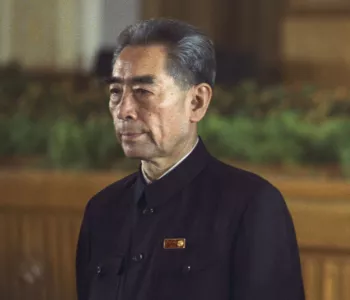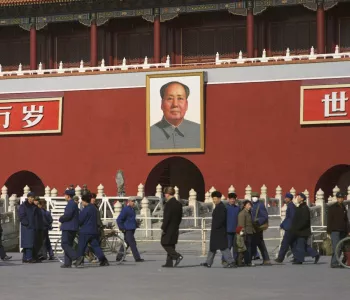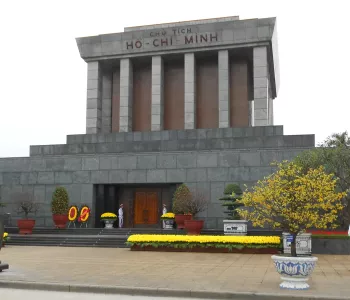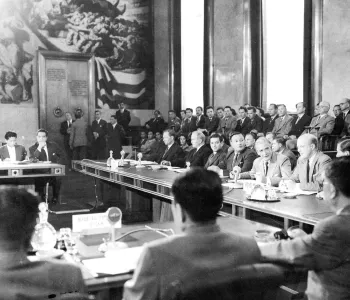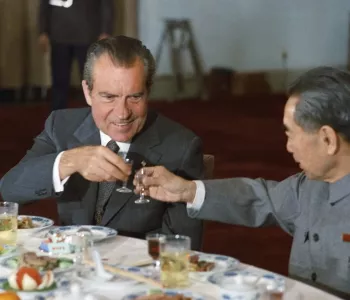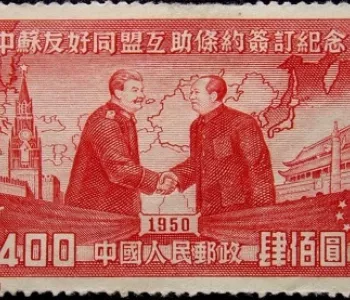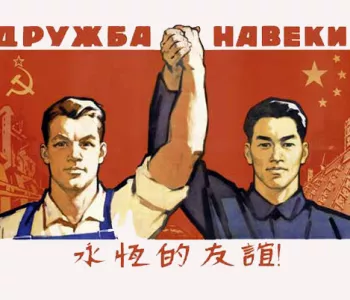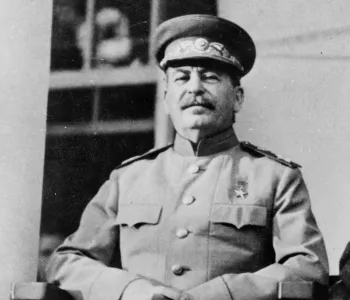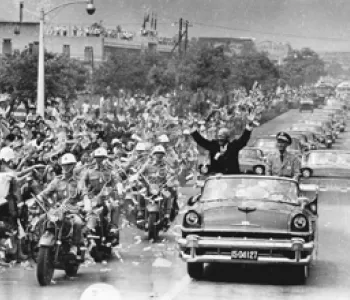The First Indochina War began as a rebellion by Việt Minh forces against the French colonial government. This collection mainly focuses on the end of the conflict in 1954. See also the Geneva Conference of 1954 and the Vietnam War. (Image: French Marine commandos off the Annam coast, 1950)

